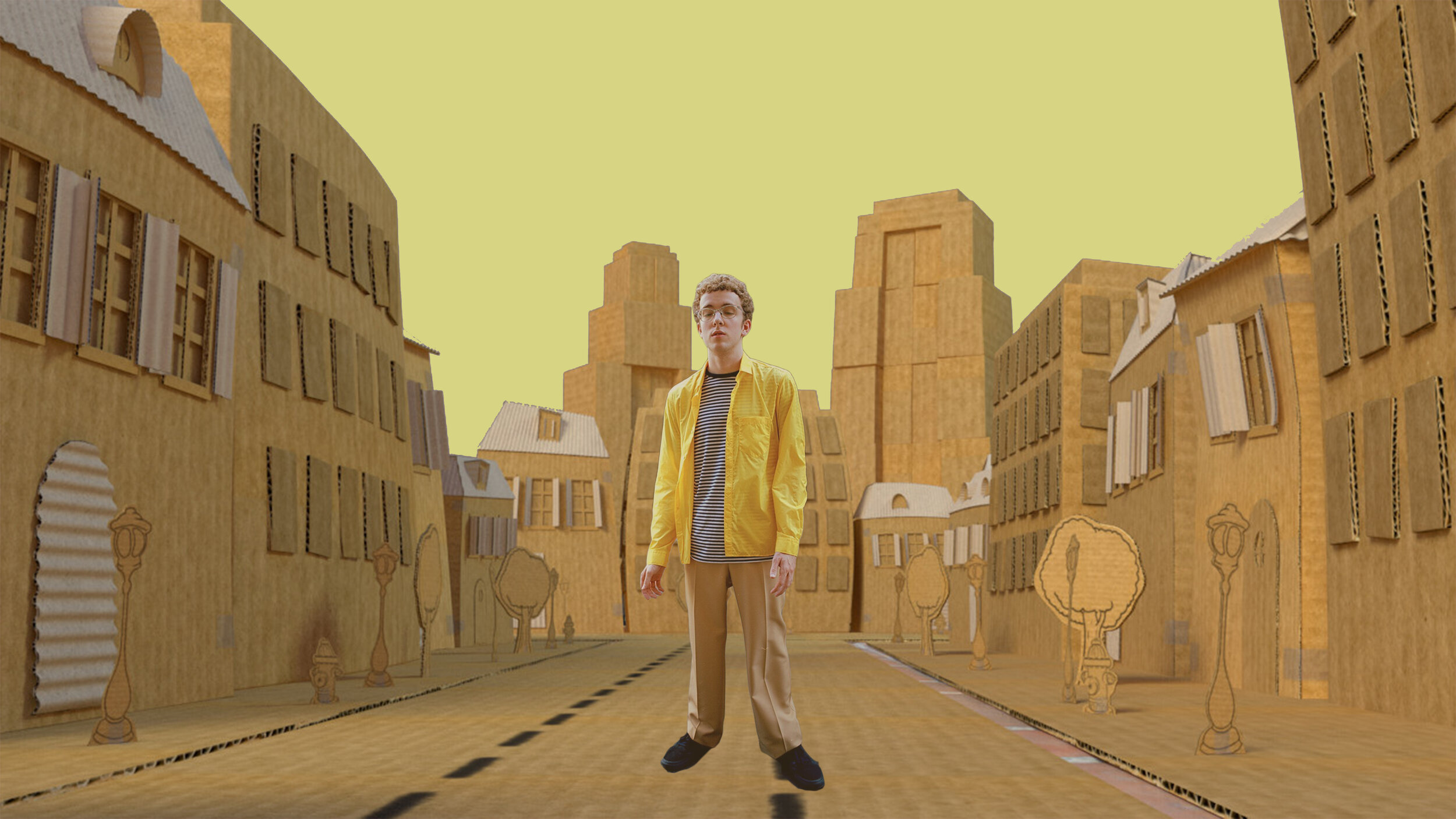Growing Up Sucks: Zack Villere’s Cardboard City
by Caleb Peck
Little World by Zack Villere is one of my favorite albums of all time. In my Junior year of high school, this album was the soundtrack to my first love, the perfect accompaniment to one of the happiest times of my life. Villere’s awkward personality and the coy innocence of his bubbly songs felt like they perfectly mimicked the naive and youthful feelings I was experiencing for the first time.
Villere’s new project Cardboard City captures some of the same feelings, Villere has noticeably matured. This album is crafted by a much more melancholy and experienced artist than the one who sang about his aspirations of being cool and watching cartoons with a girl on the floor of his room. On “Hair Cut,” Villere exemplifies his transformation, avoiding his synthy roots and taking cues from the looped and stuttering production that has become the pride of underground rappers like Medhane. The chorus is laced with sadness, questioning his former lover, “Did you feel a thing the moment you stopped loving? Or did it flicker out like a lightbulb in a room that you never go in?”
“Sore Throat,” the album’s lead single, provides a sliding yet grating melody that uplifts the listener despite its unconventional sound. Layered beneath it is soft piano and guitar, providing a landing pad for the scratchy synth. This type of bare-bones track is much more reminiscent of Little World, despite featuring darker lyrics similar to “Hair Cut.”
The piano takes a much stronger focus in tracks like “Snoopy” or “Superhero Strength,” eschewing his love for altered guitar and synths. The idea of piano somehow being experimental may come across odd, but for someone who rose to indie fame in an ultra-online era filled with guitar and synth, this choice to revert to such a foundational instrument is a rebellious choice.
This decision contributes to the maturity of Cardboard City, an album that prioritizes creating more innovative sounds over creating an easily accessible album. Sadly, this ideology seems to be scarce online, with many underground artists and contemporaries of Villere choosing to cash out with their second album and create something that can go viral on Tik Tok. Villere’s decision to create music in the way he wants to is something that any artist has to respect.
While Cardboard City may not be an album for me to fall in love to, it certainly has its own merit, exploring new, darker emotions as Villere grows and confronts the realities of being an adult. Of course, I miss the days of the brightly colored songs in Little World, the ones that sound like red and blue fingerpaintings and Michael Cera movies, but as Villere extends his musical domain, I can’t help but be curious to see what he produces next.

